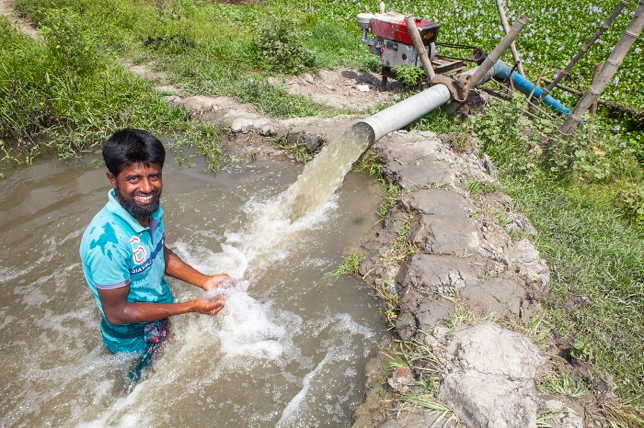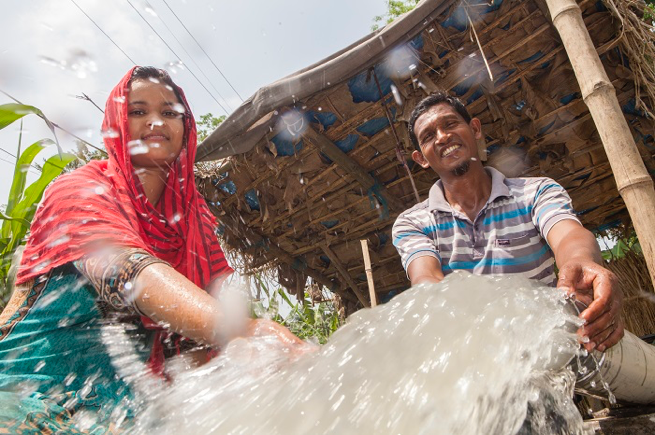
DHAKA, Bangladesh (CIMMYT) – For the first time, researchers have mapped rivers and freshwater canals in southern Bangladesh using geospatial tools as part of a new initiative to help farmers in monsoon and rainfed systems transition to sustainable farming methods. Essential to this transition is the use of surface water for irrigation, which is less costly and more environmentally friendly than extracting groundwater.
A new study by the International Maize and Wheat Improvement Center (CIMMYT) indicates that by switching to surface water irrigation, farmers can greatly increase crop production, even in the face of soil and water salinity constraints. It identified over 121,000 hectares (ha) of currently fallow and rainfed cropland that could be placed under irrigation. Dry season wheat and maize production would also increase significantly, thereby greatly benefiting national cereal productivity.
Access to irrigation is needed to ensure crops will grow during southern Bangladesh’s dry season, a challenge for farmers who have traditionally relied on rainfed cultivation. Extracting groundwater for irrigation is energy-intensive, but southern Bangladesh has a dense network of rivers and natural canals that can be used for surface water irrigation.
In order to maximize productivity without expanding to new land, farmers in southern Bangladesh will need to rotate at least two crops per year. By using crop rotation, an SI practice that can boost yields, increase profits, protect the environment, and improve soil function and quality, farmers can grow different crops on the same plot, minimizing crop expansion into forests.

As South Asia’s population continues to rise and more people move out of poverty, changing dietary preferences are increasing the demand for wheat and maize, while maintaining the demand for rice. However, the average increase in the yield potential of staple crops since the 1960s has been negligible, while farm area per capita has shrunk more than 60 percent to just a tenth of a hectare per person, according to 2014 World Bank Indicators.
The Government of Bangladesh recently adopted land- and water-use policies to support agricultural development in southern Bangladesh by calling for donors to invest over $7 billion. Of these funds, $500 million will be allocated for surface water irrigation to help farmers transition from monsoon rice-fallow or rainfed systems to intensified double-cropping systems.
Future interventions on cropping intensification in southern Bangladesh must look beyond surface water irrigation to assess where conjunctive use of groundwater might be needed and to ensure long-term environmental sustainability. While research results support the targeted use of surface water irrigation alongside improved water governance measures, more viable crop diversification options must be explored and the environmental impact of large-scale irrigation development needs to be assessed.
Building on this study, the CIMMYT-led Cereal Systems Initiative for South Asia will work with national agricultural research systems, government and private sector partners to develop policy and market interventions that continue to build sustainable intensification strategies for both irrigated and rainfed systems across southern Bangladesh.
To read the full study, click here.
 Innovations
Innovations 
